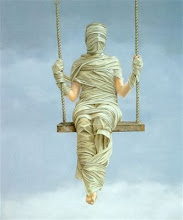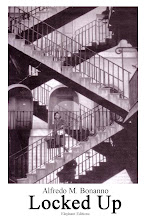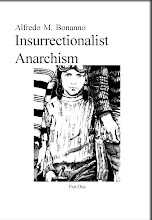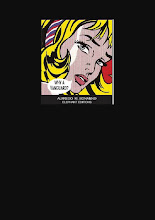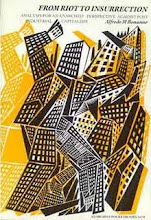Archinov’s text that we are presenting here has all the characteristics of works written by this author after the bitter experience
of the October revolution. We must not forget this premise in order to fully understand what he wants and what his preoccupations were,
not letting himself either draw from an apparent solidity to the bitter end which does not always correspond to the specific expectations
of anarchism ,as also from a sour and useless critique because he was absolutely dedicated to placing these contradictions in an
ahistorical absolute.
What is important for us, and it is for this reason that we have taken up this text again, is the constant preoccupation of
referring to the initiative of the mass and the enormous faith in the spontaneous capacity for organisation and definition which the masses
possess. Moreover, here the hint of a claim for rigid structuring for the anarchist movement is not absent, given the different type of
argument, as would fall to the platform, but remain the same structural impediments which we shall see further on in this introductive
passage.
Archinov goes into the problem of the first day of the revolution, the classical problem which has frustrated all the revolutionary
theoreticians, individuating in the worker-peasant relationship the key to the problem. He affirms that only the revolutionary collaboration
between these two classes will assure the survival of the victorious revolution in the face of the return of the counter-revolution and the
almost inevitable civil war.
Now, considering this affirmation carefully it is at the same time indisputable and aproximative. It is indisputable in that there can
be no doubt that a split, or worse still, a contrast, between peasants and workers renders the solution of supplies impossible, and with
this, determines the failure of the revolution approximate and insufficient in that it is not enough to declare the necessity of collaboration
between workers and peasants, class foundations must be examined in order to reach an analysis which is sufficient.
To rid oneself, in a few words, of the mythology of communist anarchism, Archinov immediately attacks the problem of this
collaboration between worker and peasant, but without going into it. In a certain sense it would seem to be opening up the way to
several important considerations, denying that the revolution is only an event of provisions but essentially of production, and therefore of
distribution; instead all that remains dead letters. Yes, the revolution is rightly seen as also a distributive event, and therefore
organisational, but it is not only such an event, it is also an ethical event, individual, collective, of the mass and personal; an event which
takes man by surprise but at the same time gives him instruments to barricarsi beyond his conquests: these instruments must not be
squandered.
Nettlau wrote on the subject of libertarian syndicalism, ‘Neither the one nor the other can be included, among the true
supporters (Bakunin and Kropotkin) of that idea (syndicalist), who are those who see in it the only road, inevitable, safe, in favour of
which they believe it is useful and necessary to abandon other roads, as the Spanish internationalists were to do., the French syndicalists
and as do today the so-called ‘pure’ syndicalists. The said idea remains equal to whatever other prevision, such as the free municipality of
the experimental community (the falanster), of the communities called ‘soviets’, or the anarchist group, which construct their
primordialstage, in which and for which social convivence will free and the realities and the necessities of future social life will better
acquire their initial expansion.None of these and other forms excludes, nor reinforces, the other, and these five or six activities (there also
exists the organisation of the cooperative) would do well to attribute itself to working together, because there would be the necessity of
all and also of a form wehich no organisation could create, but which is indispensable: good intention, impulse, common sense, mutual
tolerance and will’. (Short Hisatory of anarchidsm).
In these lines speaks the same type of realism and pluralismwhich pushed Malatesta to write on the possible post-revolutionary
convivence of collectivism and anarchist communism. A realism which is good sense and a direct measure of the problem bearing in mind
the possibility of man, not of man in general, a mythological construction of philosophy, but of this man, historically well planted with all
his limitations.
It is exactly here the problem of the limitations of Archinov. He does not realise that to shout against the organisational
inefficiencies of Russian anarchism,as with more vehemence he does in the platform, it is not so important as tryinbg to investigate –
anarchistically – what should be done on the day and in the revolutionary moment. If the immediate creation of an organisation of liason
between peasants and workers in view of the resolution of the problems of supplies of raw materials and whatever else is necessary for
the survival of the community, is a problem of very great importance, it does not means that this alone can guarantee the success of the
revolution, and, into the bargain, of a special revolution, the libertarian and social one. Certainly the pain accumulated in him because of
the defeat of the revolution for which so many comrades had struggled can perfectly justify his incapacity to hardly see the great
significance of the problem, but that does not change that today, must make an effort to find the right road, not letting ourselves go off
the road of eventual analogies between the insufficience of the Russian anarchist movement in the October revolution and the
insignificance of the present anarchist movement in the face of its tasks always on a revolutionaryplane. We are obliged to get right to
the bottom of the possibilities of correcting the terrible mistakes of the anarchist movement, suggest possible modifications, also using
fully the treasure of experience which comes from the Russian revolution, but we must not for this accept as a block the attempts at
structurisation and restricted catalogation of problems which were made after the bitter experience of the struggle against the Bolsheviks
by Arshinov and the other comrades of his group.
It doesn’t pay him to remember that, as we shall not do in the historical note, that Archinov concluded his life entering nto the
lines of the Russian communist party and then falling victin to the Stalinist purges. It is not in this way that we intend to criticise the work
of a man who for the major part of this life was a sincere and extremely active comrade.
The mistake we have singled out is, for us, quite clear. The situation of defeat which these comrades come from carried
Archinov to theorising a more rigid structuring of the movement (the Platform) and a more rigid Unitarian analysis of the problem of the
revolution, in a particular way of the constructive problems on which the fights with the Bolshevic bands were defeated, in that in the
destructive moment the masses should have had the spontaneouscapacity to carry out the revolution and of filling up in this way and the
inefficiency of the anarchists and the aims of power of the Bolsheviks.
In this way Arshinov encloses the whole post-revolutionary problematic in the revolution within the worker-peasant problem. It is
not so; the problem is far more complex: the problem of supplies, but also the problem of the choice of production, of defence
organisation and that of propaganda, of the formation of armed nuclei for the defence of the revolution and individual organisations of
taking possession (habitations in the fdirst place). And this can come about not through the cold and analytical programming of a
producers organisation that establishes agreements with other producers, it can only come about if this organisation is enlivened by the
constructive will of the individuals, from the faith in the revolutionary possibility of constructing not an improved duplicate of the old
society, but a new, different society, radically in opposition to the oreceeding one. And the masses can only this conviction through a
process of penetration and propaganda which is fundamental, and decisions, as well as if not more than worker-peasant agreements.
Once again the spontaneity of the masses could make the revolution but it will be the propagandistic stimuli of clarification, the
appropriate use of means of communication and diffusion,which will guarantee the persistence of the revolution and the ideological
clarificatin necessary to this persistence.
This discourse becomes clearer, in its dangerous limitations, when Archinov speaks of the occupation of the factories, as
indispensable point of departure of the revolutionary process. His hard critique of the moderation and calm which is coming to be
considered in its very nature the arm of reaction,is very correct and very interesting. ////////But we do not agree with the ahistorical
consideration of the problem of factory occupations. In effect this instrument of struggle could turn out to be unusable in a certain
revolutionary situation, and at the same time, have all the conditions because it puts into motion a clear revolutionary process. We mean
that today, at the level of the development of world industry, the arm of occupation is not always an arm which will bear revolutionary
fruit immediately. The process of inglobation in course is so fast as to easily nullify the occupation, developing it in its own interests.
To make a concrete example, we can say that in a whatever capitalist State the class struggle is so advanced as to put in
serious danger the profit of capital, there can be two cases in which capital proposes systems and various forms of comanagement and
selfmanagement in a centralised form, in other words capital will more or less consign the factories into the hands of the workers, keeping
for itself only the centralisation and the economic programming. In thisway there will be a change from marketcapitalism to State
capitalism and this will fall from the frying pan into the fire. ?Certainly, in the course of the concrete events leading to this eventual
solution there could be such changes in the previsions which will carry to the violently revolutionary outlet, but that is not guaranteed
even if the factories are in the hands of the workers.Alongside the danger of inglobation by the state, alongside the reformist danger of
the unions,, there exists also this final danger of which Archinov does not speak.#
But why does Archinov give such importance to the occupation of the factories as a point of departure of the social revolution?
the reason is still that of social disorganisation. Arshinov speaks harshly of the disorganisation of the Russian anarchist movement in other
writings, and in the same ones we are publishing here he speaks harshly of the disorganisation of the workers in general, in the
confrontation of the organisations and of the competence of the reactionary forces.But, between this disorganisation, the best organised
force and that which has the clearest ideas are the industrial workers, it is to be they who give away the correct analysis necessary to
put into motion the revolutionary frces, it is they who formulate exactly these analyses to resolve the problems of linking up both with the
mass of the other workers in industry as well as with the workers of the land.
But Arshinov realises the danger of this affirmation and immediately runs to fix its limitations: these workers must always do
everything in collaboration with the masses, with all of the masses and not only those of this or that industry or industrial sector. In
practice, this affirmation, repeated more than once, is too general to be convincing. Certainly an eventual initiative from the most
advanced point of the proletariat could carry to the revolutionary event, but in this way if one should have to run immediately to share it
out, inserting this most advanced part of the proletariat in an egalitarian logic which can, within certain limits, guarantee the impossibility
of a transformation of this pre-eminence in a dictatorship from whence we should enter fully into the Marxist field.
We do not know how much this passage of Archinov’s has influenced the modern theoreticians of the French ORA and the
ideological abortion which responds to the name of the ‘anti-state dictatorship of the proletariat’, however, we can individuate, in this
work assigned by the Russian theoretician and revolutionary to the industrial proletariat, meant as an advanced point of the workers, a
dangerous opening to the concept of the dictatorship of the proletariat’, a Marxist concept which remains such even if it is servedup in a
different guise.
… is a complex conception of human action, a conceptionwhich … praxis identifiable with the violent revolutionary struggle, but it
cannot clone itself without submitting to dis……. Even in the revolutionary moment the anarchist must ….. his action to with that wide
conception of life which cannot……. The particular moment demands it. Each time that has been….. to political strategy, we have found
ourselves in the losing par….. Spain, so in Russia. In spain the lesson is really very clear.
What really counts, in our opinion, is not organisational strength, which is only a faulkty efficientistic perspective can change for
dsomething essential, but the impulse, will, the consciousness that the wworld must be changed, interestedness, abnegation, moral
strength. If these premises exist they can develop, spontaneously or suggested by the active minority, forms of grass roots organisations
which can assume aspects and particularities that are very different in time and space, but all forms not tied to precise contingent
necessities considered in absolute as historical facts, necessary in any case to be able to speak of revolution. In our opinion, it is not right
to say that every future revolution will begin from the occupation of the factories and the organisational union between the land and
industry: the future revolution could be very much more complex and far more difficult to preconceive in detail. In this case, if anarchists
set off, against all their tradition, from preconceived schemes necessarily applicable because they have been constituted and analysed a
priori, they could have the ugly surprise of being ousted by the mass who, in their creative and destructive start, are not so ready to go
behind this or that preconstituted scheme.
The future revolution, if it is, will always be a revolution which will overeturn, along with the old reactionary world, also a good
part of our revolutionary proposals. To us the caspacity and sensibility to gather the new symptoms and impulses for the future which the
pre-revolutionary formations will never miss pointing out.
skip to main |
skip to sidebar

Some writings of Alfredo Maria Bonanno in English, or almost

Alfredo Bonanno was arrested on October 1st 2009 in Greece, accused of concourse in robbery. With him, anarchist comrade Christos Stratigopoulos.
Here are a few translations and part translations of a small portion of Alfredo's writing. This is a work in progress, many of the translations are as yet incomplete. Open links to find more of Alfredo's work.
Alfredo Bonnano Released
Nov. 22 Alfredo Bonnano was sentenced to 4 years imprisonment (which practically means that with the time served so far and the fact that he is over 70years old HE IS RELEASED
Christos Stratigopoulos (who took responsibility for the action)
was sentenced to 8 years and 9 months with the Greek law will probably be released at the end 2011
BY ANY MEANS NECESSARY
LINKS
click on any of these labels to read text
- "Community" sickness
- 1981 - Editorial
- A Critique of Syndicalist Methods
- A few notes on Sacco and Vanzetti
- A few notes on the revolutionary movement in Italy
- A little man in Singapore
- A million jobs
- A question of class
- Affinity
- After Marx autonomy
- Albania Laboratory of Subversion (Introduction)
- Anarchism and the national liberation struggle
- Anarchists and action
- AND WE WILL ALWAYS BE READY TO STORM THE HEAVENS AGAIN (Against amnesty)
- ANTI-INSTITUTIONAL MOVEMENT
- Are we modern?
- Armed Joy
- ARMED STRUGGLE. SOME REFLECTIONS.
- Autonomous base nuclei
- beyond syndicalism
- Beyond workerism
- But what is the imaginary?
- Class War
- Comiso - Organizational document of the self-managed leagues
- Considerations on illegality
- Dissonances (Introduction)
- Elephant Editions 1986
- Excluded and included
- Farewell to claiming
- Feral Revolution (Introduction)
- FICTITIOUS MOVEMENT AND REAL MOVEMENT
- For an Antiauthoritarian Insurrectionist International - Proposal for a debate
- From riot to insurrection
- From the centre to the periphery
- Good technology
- Guerilla Extraordinary
- Habits and idols
- Hegel
- I know who killed chief superintendent Luigi Calabresi
- Illegality
- Illness and capital
- Informal organisation
- Insurrection
- Internationalism
- Introduction to Sabate
- Introduction to Anarchism and Violence
- Introduction to Bratach Dubh English edition of Malatesta's Fra Contadini
- Introduction to Insurrectionalist Anarchism
- Introduction to Strange Victories
- Introduction to The Conquest of Bread
- Involuntary aspects of voluntary work
- Let's destroy work
- LET'S DESTROY WORK. New introduction
- Let's keep our feet on the ground please
- Lightening Conductors and Stand-ins - more shots of non-news
- Lightning Conductors and Stand-ins
- Lightning Conductors and Stand-ins (cont.)
- Locked up
- Looking forward to self-management
- Loss of language
- More on internationalism
- National Liberation Struggle
- nineteen years on
- No more crises
- Non-news about drugs
- Non-news about racism
- Ode to the Uniform
- On Feminism
- One's life on the line
- Order and chaos
- Otto Ruhle (Introductory Note)
- OUR ROLE IN THE PRESENT CONFLICT
- Palestine mon amour
- Pantagruel anarchist review
- Pinelli
- Prison and Prisoners’ Struggles - Introduction
- Propulsive Utopia
- Quality and the factory
- Restructuring Capital and the new democracy
- Revolution - Violence - Antiauthoritarianism
- REVOLUTIONARY VIOLENCE
- Science and the social revolution
- Self-management
- Severino Di Giovanni in Argentina 1923-1931 by Osvaldo Bayer
- Social banditry
- SOME NOTES -
- Space and Capital
- Stirner
- Stop the City? From information to attack
- Strategy and Methods
- Streamlined production
- The "end" of the crisis
- The aesthetics of anarchism
- The anarchist tension
- The area of autonomy and the anarchist movement in Italy
- The armed wing of science
- The Cruise missile base at Comiso can be prevented
- The ethical bank
- The insurrectional project
- THE LANGUAGE OF TECNICS -
- The logic of insurrection
- The moral split
- THE NECESSARY DESTRUCTION -
- The priority of practice
- The refusal of arms
- The revolutionary project
- The revolutionary struggle
- The significance of an insignificant event
- The struggle for self-managed social space
- The tyranny of weakness
- The whole and the part
- The young in a post industrial society
- Theory and action
- Towards anarchist antimilitarism
- TOWARDS THE GENERALISATION OF ARMED STRUGGLE
- TRANSFORMATION IN THE WORLD OF WORK AND SCHOOL -
- TRUTH -
- Unemployment in Italy - How come everything doesn't explode?
- Untitled
- Violence and non-violence
- What are anarchists
- What can we do with anti-fascism?
- Why a vanguard?
- Why Insurrection
- World domination in a few words

